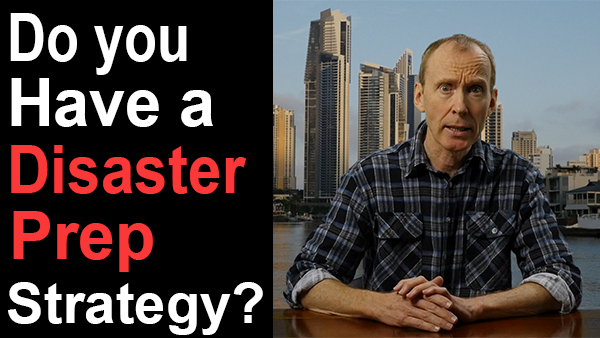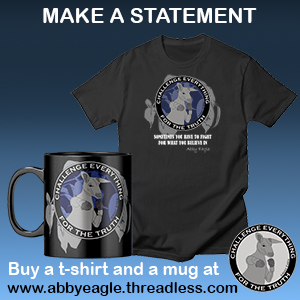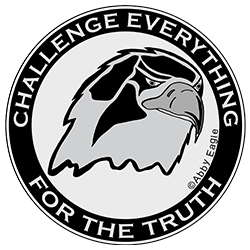
What would you do if a major earthquake hit the Gold Coast of Australia in the near future and it caused a tsunami to flood the Gold Coast from Coolangatta to Southport? What would you do if there was a major bush fire around Mudgeeraba and the hinterland? What would you do if we had a major flood like we had a couple of years ago that flooded areas of Brisbane around the river? What would you do if you were woken in the middle of the night by a fire alarm? Do you have a disaster preparedness strategy? How should we prepare for disasters? .NLP Coaching Gold Coast, Robina Australia. Phone Abby Eagle on 07 5562 5718 or send an email to book a free 20 minute telephone or Skype consultation - NLP Hypnotherapy.
Do You Have Disaster Preparedness Strategy?
By Abby Eagle (2018)
Click the Image to Watch on YouTube
Are you prepared for an emergency? What would you do if your car broke down? What would you do if you lost your job? What would you do if you were travelling interstate or overseas and you had your suitcase stolen, or your wallet or your passport? What would you do if you got arrested? Or you got taken to hospital? What would you do if there was a fire at home or at work? What would you do if there was a flood? What would you do if there was no electricity and gas for a week? What would you do if there was no Internet connection for a week? Do you have systems in place?
I live in a small gated apartment block in Varsity Lakes on the Gold Coast of Australia.. On the ground floor there are four offices and six garages. On the top two floors there are six residential apartments. A couple of weeks ago at ten to eight in the evening I heard a fire alarm go off in one of the apartments. A few minutes later the main alarm went off in the building. It was loud.
In my younger days I would have run outside to see what was going on but now I suffer from CFS so can’t do that. So I opened the door to check for smoke. There was none. So I grabbed my rucksack, some of you might call it a backpack. I put on shoes. Grabbed my keys, wallet, hat. Put my phone in the rucksack. In my rucksack there are lots of small items, including glasses and tooth brush. I put on my watch. Grabbed a water bottle. Poured out half of the water to reduce the weight, knowing that there was a tap outside. It was cold outside so I grabbed a jacket. I thought of grabbing a doona to keep me warm in case I had to spend the night outside but I have a doona in my car with a few other survival items, like a torch, bottles of water, pen and paper.
Then I went into my office and grabbed my briefcase. In the brief case I have the most important documents that I would need. There is also my passport and backup drives for the computer. So I closed the briefcase and put it next to the rucksack by the door. The next bit was funny because then I was not sure what to do. I started asking myself questions like. Should I take the computer? Should I take a clock? I have a film studio with some expensive equipment. I thought, should I take a camera? I looked in my rucksack. There is always a towel in the bottom. Did I really need it? I left it there. There was space in the rucksack, so I grabbed another item of clothing which I could wear the next day. My heart was pounding. I thought to myself, should I turn off the TV? Should I turn off the computer?
Then I put on the rucksack, grabbed the briefcase and exited my apartment. I left the door unlocked. Then I went upstairs to check on my neighbours. I knocked. No answer, so I tried the door. It was locked. So then I walked down the stairs. I had a choice to exit through my garage or take the long way out the front door. There was no smoke or flames so I walked out the front door. There was a group of people standing out the front. I asked them what was happening. They said there was no fire – just smoke from hot oil on a kitchen stove. I wanted to know what was happening so I asked the owner of the apartment to show me. It was smoky but there was no fire. So I went back outside.
It was interesting because my upstairs neighbours were outside. They had to walk past my door on the way out. They did not check on me but I checked on them.
I asked if anyone had called the fire brigade. No one had. I think we all assumed that the alarm was connected back to some base which it was not. I had a neighbour come with me and check the fire box. There was a message which said that it was not connected to base and that we needed to phone a number. I asked someone to make the call. That was about 15-20 minutes after the alarm had first sounded. Someone else phoned the fire brigade which was unnecessary as we had already ascertained that there was no fire. So eventually after 35 minutes the alarm company arrived and switched off the alarms. Five minutes later the fire brigade arrived. So it took 40 minutes for the fire brigade to arrive. If there had been a fire the apartment block would have burned down.
If we had a disaster prep strategy then the problem could have been solved in 5 minutes. So this is what I suggest.
DESIGN A DISASTER PREP STRATEGY
In an emergency you have only a few minutes to grab the essentials and run for your life. This means you need to be prepared. It also needs to be something which you have rehearsed so that it comes quite naturally to you. Because in an emergency there is little time to think about what you should or could do. You have to react in a way that serves you.
So what do you take with yourself when you catch a plane? What are the basics that you would need to continue your life if you lost everything and you ended up as a refugee?
Ideally you would need a rucksack, a brief case, a suit case, clothing, car, computer, food and water.
Get Dressed
Let’s start with the basics. Clothing. In my case I was already dressed. I got my shoes. I keep them in the same place so I know where they are. I put on my shoes then I got my car keys, wallet, handful of change and put on my hat. They are always in the same place, not far from the shoes. Then I grabbed my rucksack which is stored near the car keys. Then I grabbed a jacket which is in the same room. This procedure is something that I have done thousands of times before I leave my apartment.
Rucksack
You need a rucksack or a backpack as some people call them. What do I have in mine? Mobile phone. Towel. Water bottle. Sun glasses. Reading glasses. Toothbrush, toothpaste, dental floss and piksters, lip balm. Pens and pencils. Notepad. Handkerchief and tissues. Panadol. Comb. Business cards and store cards. And then a copy of my travel lists.
Travel Lists
A seven page document. So when I travel I use the travel list as a checklist of what I need to take with me. There are lists of items under the headings: essentials, clothes, bathroom, outdoors, bedroom, kitchen, office, camera gear and a list for what I require in hotel accommodation. Then I have a list of details about important bills that reoccur, like vehicle registration and insurance. Then there is a list of what is required for when I travel overseas. Then I have a list of family, friends and contacts with their full names, phone numbers and email addresses. Some of that information is in my mobile phone and on my computer but what happens if the mobile phone battery goes flat?
Then I have the contact details for key government agencies, travel agents and Australian Passport Information Service. And then I have the details for Roadside Assist in case the car breaks down and phone numbers for towing services and taxis. When I travel I also have a photocopy of everything in my wallet – that is credit cards, drivers licence, etc. You need to keep that safe but you need it if your wallet gets stolen.
Brief Case
I have a briefcase which is used just to store important stuff, like passport and backup drives for the computer. Then important documents, like university records, business records, insurance details, passwords, etc.
Suit Case
I have a travel suitcase on the floor in my bedroom. I use it to store all the bits and pieces that I need when I go travelling. At short notice I could pack the suitcase with clothes and things and be ready in half an hour.
Vehicle
I have a vehicle garaged downstairs. As well as having the basic tools necessary to change a wheel, there are bottles of drinking water which could also be used to refill the radiator. There is a wind up torch, a navigator, a recharger for the mobile phone, pens, pencils, note pads, loose change, matches, etc. There is also a doona, a blanket and at one time I kept some old clothing, which could be useful if you do not have time to grab clothing when you exit your home.
So to summarise. You need to be able to get dressed quickly, grab your phone, car keys, wallet, rucksack and brief case. If you had advance warning then you would grab the suitcase and some food and water, throw it in the car and drive away.
Types of Emergencies
You need to keep in mind the type of emergency that could occur and when they could occur. That is you need to consider the worst case scenarios – the negative what-ifs. That is why regular first aid training is essential.
What-if there was a fire, a cyclone, a flood, a terrorist attack? On the Gold Coast the chances are pretty remote but about 40 years there were severe floods on the Gold Coast. Homes on Brisbane got flooded last year. There have been severe floods and fires in the bushland of Australia. Twenty years we caught the edge of a cyclone. Five years ago we caught the edge of a cyclone and my neighbours lost a tile on the roof and their place got flooded. A week ago trees were uprooted when a fierce storm ploughed through the Gold Coast. Fifteen years I say hail the size of a mans fist hammer Palm Beach and Currumbin. The hail destroyed two of my neighbours cars. So what if a disaster occurred in the middle of the night when you were asleep? This is why you need to be prepared and have rehearsed your drill so that it becomes second nature to you.
As an individual you can only do so much but as a team you can become ten fold, a thousand fold stronger. So where is team work useful? Not just for a football team but I would suggest everywhere you find a group of people. That means a family could achieve so much more if they worked as a team. Friends who meetup for an activity could achieve and experience so much more.
Think of all the areas where there is a group of people and you will see how team work could improve the functioning of that group. People living in an apartment block; people living in a high rise; people at work, at school, at university; people living in a community; people living in a city; people living in a country. Team work needs to be established at the micro level first – at the level of family and friend so that it can then become part of the national identity.
In brief a high performance team is comprised of a group of individuals bound together by a unifying principle. The team has structure; it is organised. There are systems and procedures. Everyone has a job title and description. There are rules which the members agree to abide by. One of the key elements to building a high performance team is understanding that different personality types think and act differently.
If you want to learn how to build a high performance team then watch my two introductory videos. If you want to get in touch with me then you can do so using the contact form in the top right of this page.
Share With Friends
| DISCUSSION GROUPS | |
|---|---|
 |
|
| NLP Future Selfing | |
| NLP, Hypnotherapy & Meditation | |
| NLP Peace Mapping | |
| Facebook Discussion Group | |
| The secret of high achievers |
|---|
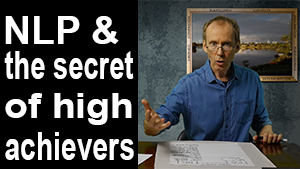 |
| How to build a powerful team |
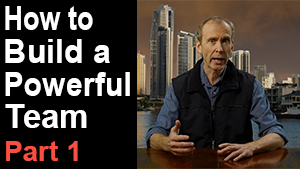 |
| Learn the NLP Meta Model |
 |
| How I stopped drinking alcohol. |
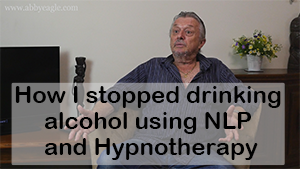 |
| How to coach yourself using NLP. |
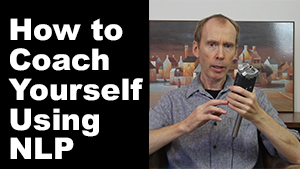 |


